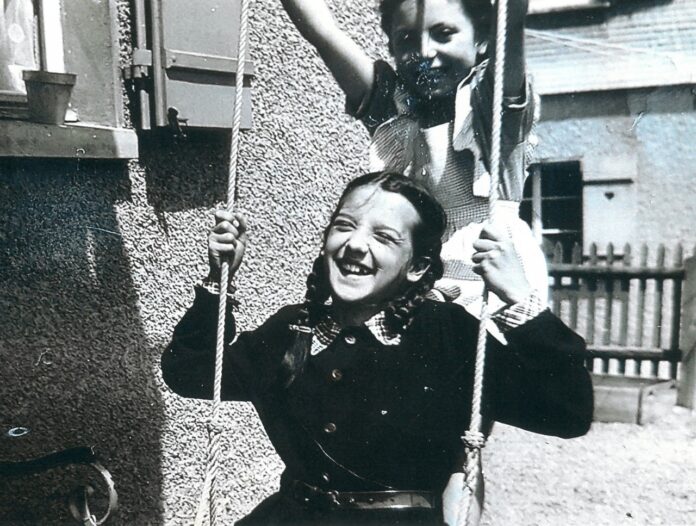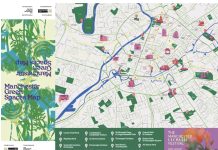Hundreds of poorly children who swapped polluted post-war Manchester for ‘health holidays’ in the fresh Alpine air have shared their little-known adventures for a new documentary.
In 1948, in a scheme akin to the wartime evacuation, ‘delicate’ children were taken away from their families to Switzerland for three months to aid their recovery from respiratory diseases worsened by poor living conditions in Manchester and Salford.
Now, over 70 years later, the Returning Home history project led by Manchester Metropolitan University has tracked down some of those 238 children – then aged between 5 and 11 and now in their 70s and 80s – to share memories of their life-changing journey.
New documentary Returners Stories features their recollections alongside moving North West Film Archive footage of the children being reunited with their families.
Professor Melanie Tebbutt, Professor of Youth History at Manchester Metropolitan University, and lead academic on the project, said: “Being sent to Switzerland when very young for three months in 1948 was a huge experience for these Manchester and Salford children and it has been very moving to hear them describe how staying on their own with a Swiss foster family affected their lives.
“Some had fond memories, others were much more ambivalent, although all noted how their health improved as a result of better food and fresh air.
“The NHS, established shortly after their return, made an immense difference to the life prospects of children like these, whose stories are a reminder of the impact that poverty and pollution had on health 70 years ago, and how eager parents were to give their children a healthier future, even if it meant sending them away for several months to a foreign country.”
The trips were part of a post-war programme run by the Swiss Red Cross across Europe for children affected by the war.
Manchester and Salford children were included because of high levels of childhood illness in working-class areas, such as asthma, pleurisy – which is a chest inflammation – and low weight. They had already spent long spells in hospital and open-air schools, and were included on a local authority register of ‘delicate’ children.
Staying with foster families, many enjoyed regular trips to the Swiss countryside. They had their own bedrooms in large country houses, rather than sharing with siblings in overcrowded inner-city terraces, and ate fresh food while Britain endured rationing.
Maureen Hales had spent six weeks in hospital before she was selected for the scheme. In Switzerland, she enjoyed regular outings, and her hosts knitted her new clothes and sent home gifts for her family.
She said: “When I look back, it was beautiful, the experience. Going into a home so big, all white and with frilly curtains. It was absolutely gorgeous. We looked out at snow-capped mountains in the distance, and it was really beautiful.”
Joe Littler wrote a memoir about his experiences, which his wife read from in the film.
He wrote: “There I was living on the fat of the land, with a bedroom of my own, no school, good clothes. An acre of land to work and play in, wonderful fresh food, and visits to interesting places. No wonder I didn’t want to go home to cheerless Britain with its limited food, a small, underheated house, and I’d have to start school again. When the time came to return home, I didn’t want to leave. I wept bloody buckets.”
Richard Larkin, then seven-years-old, had suffered bouts of pneumonia and pleurisy when he was sent to Switzerland. He remembered gaining so much weight that his younger brothers no longer recognised him when he returned home.
He said: “When I got back, I was a different lad altogether. With regards my breathing, I’ve been fine ever since.”
Returning Home launched in 2018 with a public call for Swiss returners to get in touch. Dozens came forward, offering old photos, postcards, letters and diaries and 80 people attended a screening of the original NWFA film at Manchester Metropolitan University.
A Returning Home website was launched after the COVID-19 lockdown, as conducting planned group interviews was no longer possible. The website showcases the new documentary, as well as personal written testimonies from returners.
Returners Stories is available to watch online and excerpts will be played as part of Manchester Histories DigiFest on Saturday, September 5. It is hoped a public screening will follow in 2021.







